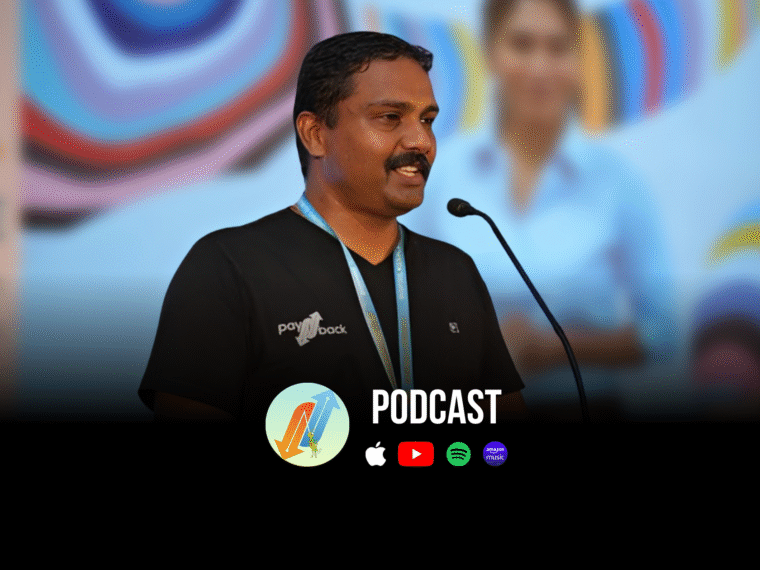Table of Contents
Walk through any Indian town and you’ll see it: the corner kirana store with its shutters half-closed, the small clothing shop waiting for footfall, the chemist losing customers to quick-commerce apps. Once, these shops were at the heart of our daily lives. Today, many are struggling to survive.
That’s the challenge PayNback, a young startup from Kerala, is tackling head-on. Its founders, Bony Thomas and Shybi Varghese, believe saving small shops isn’t just about nostalgia; it’s about protecting the backbone of India’s local economy.
Local shops still matter!
After the pandemic, something shifted. People who once invested in big plots of land started buying smaller ones, hoping for rental income. But the houses and shops they built often stayed empty. At the same time, small retailers began losing ground to e-commerce giants and flashy malls.
Bony noticed the difference between the Gulf, where he once worked, and Kerala. In the Gulf, local shops survive because they extend trust and credit, a lifeline for communities. In India, discounts from corporate chains like Reliance lure customers away, while kirana stores lose the one thing they always had: loyal business.
“Your neighbourhood shopkeeper will give you rice or milk on credit if you’re short on cash,” Bony says. “No corporation will ever do that. If we lose these shops, we lose that safety net.”
The question was clear: how do you pull small retailers into the digital economy without stripping away what makes them unique?
PayNback’s answer
The answer came through payments. Millions use UPI daily, yet there are no rewards for these transactions. Cards offer cashback, loyalty points, and exclusive deals, but only at big outlets. For the common man buying from the store next door, there’s nothing. PayNback flips that.
- Buy groceries at Shop A and earn cashback.
- Spend that cashback at Shop B or C.
- Earn fresh rewards on every new transaction.
The cycle keeps customers returning, keeps money circulating locally, and makes shopping small feel rewarding again.
To power this, PayNback has its own app (live on Play Store and App Store) and even a soundbox for instant UPI confirmations.
More than cashback
What makes PayNback interesting is that it doesn’t stop at rewards. Bony and his team are building a full-stack digital toolkit for merchants:
- Customer insights: Shops can see their top buyers daily, weekly, or monthly, and reward them.
- Referrals that last: A customer referring another continues to earn a percentage each time the new customer shops, not just once.
- Bulk buying power: Once enough stores join, they can pool purchases and access wholesale rates usually reserved for big chains.
- Financing help: Using merchant transaction data, PayNback aims to partner with banks and NBFCs to unlock credit for small shops.
In short, it’s a loyalty program, supply chain aggregator, and fintech layer rolled into one.
Early reaction and local resistance
The journey hasn’t been easy. Kerala is not known for being kind to startups. “People here believe real startups only succeed in Bangalore,” Bony admits. That scepticism meant the team had to rely on community-driven marketing, expos, events, and trade shows, instead of flashy campaigns.
So far, the results are promising:
- 120 merchants onboard – across Ernakulam, Palakkad, and Thrissur
- 1000 users, with 800 active
- Two years of product development, fully bootstrapped with family support
And all this from a founder without a tech background, who had to build a 12-member in-house development team after outsourcing failed.
Why does this matter?
PayNback’s story is about more than one startup. It raises a broader question for India: will the future of commerce be dominated by corporate giants, or can technology help small shops remain competitive?
By tying digital rewards to hyperlocal trust, PayNback is betting that the kirana store can be modernised without losing its soul. If the model scales, the impact could go beyond Kerala. Imagine millions of small retailers across India not only surviving but thriving, with better margins, digital credit, and stronger customer ties.
We don’t just want to give cashback. We want to build an ecosystem where small shops have the same advantages as corporates, and where money stays within the community.
That’s a vision early-stage investors, ecosystem builders, and anyone who cares about India’s economic fabric will want to keep an eye on.
Read more about them here:
PayNback is featured in The First Brick series. The series highlights promising early-stage companies.
What are your thoughts on PayNback by Bony and Shybi? Tell us in the comments below.
Did you read our last article on HealthMitra by Michael and Patrick? Read it here.

